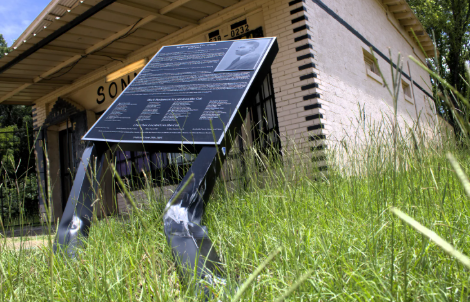Agreement between the city of Tyler and EPA filed in federal court
Published 8:46 pm Tuesday, January 17, 2017
An agreement intended to help the city of Tyler limit potential discharges of wastewater into the environment was filed Tuesday in federal court.
The agreement between Tyler and the Environmental Protection Agency is an 88-page document, known as a consent decree, outlining initiatives the city must complete to upgrade and maintain its wastewater system.
Trending
The decree solely relates to the wastewater system and has nothing to do with the city’s drinking water system, which uses separate piping.
The City Council approved the settlement and signed the document in November.
Since then, the decree was signed by leaders in the EPA and the Texas Attorney General’s Office before it was filed in the Eastern District Court of Texas on Tuesday.
“Since their threat of lawsuit began in 2005, we’ve been very proactive in budgeting and planning sewer upgrades,” said Mayor Martin Heines. “When the consent decree went before the City Council in November, we had already adopted a five year infrastructure plan, with approximately 70 percent of the projected updates to be paid for in cash generated from our wastewater rate structure. Furthermore, we have requested that the fines be redirected back into the community’s infrastructure where the money belongs.”
It’s unclear what the court’s timeline will be, and what will need to happen for it to move forward. The decree does, however, outline a 30-day public comment period. That had not been scheduled as of Tuesday.
Jennah Durant, an EPA spokeswoman, said the public comment period starts after a notice is placed in the Federal Register, which is where the legal actions taken by the federal government are published. She said that generally happens seven to 10 days after filing.
Trending
As part of the decree, the city will pay a total of $563,000 in fines to settle past wastewater overflows. Half, or $281,500, will be paid to the EPA, and other half will go to the Texas Commission on Environmental Quality. Another $30,000 will be paid to the Texas Attorney General’s Office for legal fees.
Neither party admits any guilt under the decree, which establishes a plan for evaluating and maintaining Tyler’s wastewater system. The plan pertains only to the underground wastewater system, and does not include the wastewater treatment plants.
The city maintains 690 miles of sewer mains, more than 9,000 manholes and 22 lift stations.
Since 2005, there have been 577 discharges, for an average of 48 per year.
According to the city, the majority of those are because of blockages in the wastewater system – predominantly from tree branches growing into the pipes and from grease clogging the pipes. Other causes include flushing diapers or rags and system failures and breaks.
REQUIREMENTS
The consent decree outlines initiatives and gives deadlines.
The city is required to develop a manual in the first year of the 10-year agreement that includes cleanup procedures and how the city trains employees and responds to overflows.
The city then will expand its method for cleaning pipes. Right now, the city concentrates on “hot spots,” which are places known to have trouble.
Tyler commits to cleaning its 690 miles of its system over a 10-year period, with the aim of doing 100 miles a year, plus hot-spot cleaning.
Then the city will have to assess its hydraulic capacity for a five-year rain event, which will evaluate places where the system may be undersized and make a plan to fix it.
Overall, the city is anticipating it will cost $28.5 million to correct existing deficiencies related to capacity problems, but the number could rise after assessment.
The city will have a timeline to evaluate its 9,000 manholes, gravity mains and lift stations.
Twitter: @TMTFaith
Read the entire consent decree at https://www.justice.gov/enrd/consent-decree/us-et-al-v-city-tyler-texas.







